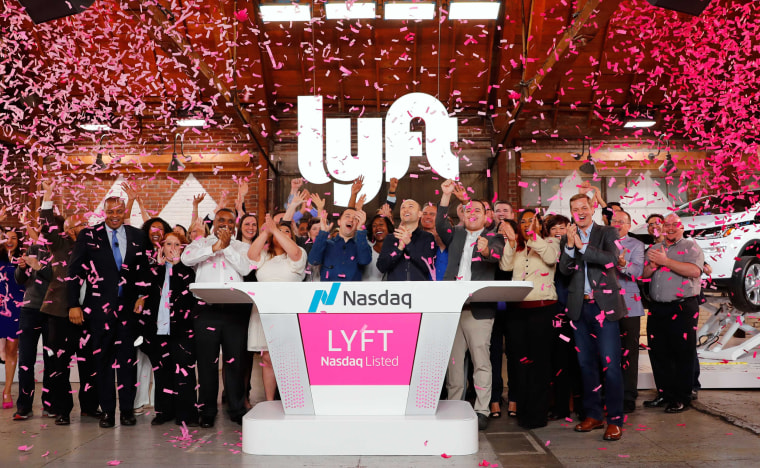What was supposed to be a defining year for technology companies making initial public offerings quickly turned into a year of caution, after several high profile flops and failures.
At least 203 companies filed for IPOs this year, down from 221 the previous year, according to Renaissance Capital, a provider of institutional IPO research.
The markets weathered plenty of volatile moments, from a government shutdown in January to dealing with the trade wars, while companies such as WeWork were scrutinized for their IPO valuations.
“There is a clear shift to demand for clearer paths to profitability and strong definition on business model,” said Chris Tran, head of Asia at investment bank North Ridge Partners.
Here’s a look at some of the notable IPOs that didn’t quite take off as planned.
Lyft
Lyft beat Uber to an initial public offering and the results were a sign of what was to come. The ride-hailing giant opened on March 28 at $72 a share, then sank as investor concern mounted about the company's investment-heavy, profit-light model. Since then, it has posted a high of $88.60, but currently trades at around $45.
“I feel a deep amount of responsibility,” company co-founder John Zimmer told CNBC in November.
Uber
Ride-hailing start-up Uber finally went public in May at $45 per share, after more than a year of scandal, including the ouster of CEO Travis Kalanick. What was supposed to be a big moment and reward for longtime employees turned into disappointment.
Shares of Uber were down more than 7 percent after the first day of trading, prompting new CEO Dara Khosrowshahi to send employees a reassuring note.
“Obviously our stock did not trade as well as we had hoped post-IPO,” he said.
He urged employees to look back at IPOs by industry giants Facebook and Amazon, which also had tough starts.
“We will be judged long-term on our performance, and I welcome that,” Khosrowshahi wrote. “It’s all in our hands.”
As of Dec. 27, shares of Uber were trading at around $30.
The We Company
The We Company, the group behind WeWork, was supposed to be one of the most anticipated IPOs of the year. That all changed when investors and journalists questioned the company’s $47 billion valuation, which didn’t line up with the information in the company’s financial disclosures.
Plans to go public were put on hold, founder and CEO Adam Neumann was ousted, and the company took a bailout from its biggest investor, SoftBank, to try and correct course.
While the IPO plan was, by many accounts, a complete mess, The We Company’s story has served as a cautionary tale that the days of hyper-inflated valuations are over.
Guardion Health Sciences
Guardion Health Sciences is a health technology company focusing on the early detection, intervention and treatment for eye diseases. The San Diego, California-based company has the distinction of being the worst performing IPO of the year, according to data from Renaissance Capital. Trading under the symbol GHSI, the stock had a high of $4, but now trades for just 18 cents a share, marking a slide of more than 95 percent.
Greenlane Holdings
The distributor of Juul and other vaping products was one of the worst performers of the year. The company’s stock has been sensitive to efforts by cities to crack down on vaping products. After San Francisco passed a ban on e-cigarette manufacturing and sales on city property, shares of Greenlane Holdings, which trades under the symbol GNLN, dropped 17 percent. The company’s stock is finishing the year trading at around $2.90, down nearly 90 percent from a high of $29.
Sundial Growers
Shares of Sundial Growers, a marijuana company, were down 85 percent this year, earning it a spot on the worst performing IPOs list. However, the stock price has shown some signs of growth, spiking 6 percent in October after the Canadian company announced a new recreational cannabis brand. While the company and the market are small for now, legal cannabis revenue in the United States is expected to continue to light up to the tune of $23.4 billion by 2022.
